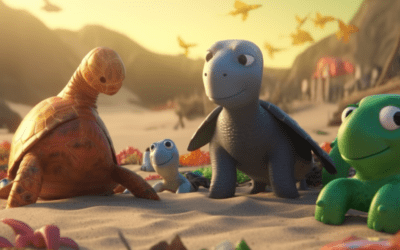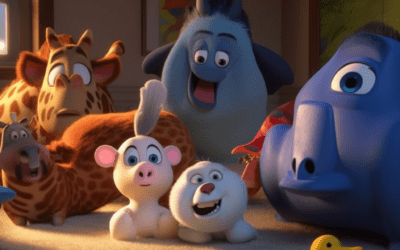Why Can’t Monkeys Talk?
Introduction
Monkeys are fascinating creatures! They swing from tree to tree and communicate with each other using a variety of sounds, gestures, and facial expressions. But have you ever wondered why monkeys can’t talk like humans do? Let’s explore this question together and discover the scientific reasons behind it.
1. Different Vocal Anatomy
One major reason why monkeys can’t talk is because they have a different vocal anatomy than humans. Just like how we have vocal cords that allow us to make various sounds, monkeys have their own set of vocal organs called the larynx. However, their larynx is positioned higher up in their throat, making it difficult for them to create the complex sounds necessary for human speech.
2. Lack of Brain Development
Another reason monkeys can’t talk is due to their brain development. While monkeys are intelligent creatures, their brains are not as developed as human brains. Our ability to learn and produce language is closely linked to the structure and size of our brains, specifically the areas responsible for speech and language. Monkeys’ brains have different proportions and lack certain critical features needed for speech production.
3. Lack of Language Ability
Monkeys naturally communicate with each other using their own unique systems. They have their own languages or call systems that allow them to express themselves effectively within their community. These communication methods include vocalizations, body language, and facial expressions. Although they can convey important messages to their fellow monkeys, their systems of communication are different from human language, and it is unlikely for them to acquire speech abilities.
4. Limited Voice Control
Monkeys have limited control over their vocalizations. They can produce a wide range of sounds, such as hoots, screams, and calls, but they cannot manipulate these sounds in the same way humans can. For example, they cannot control the pitch or volume of their vocalizations as precisely as we can with our speech. This limited voice control makes it difficult for monkeys to imitate and reproduce the sounds of human speech.
5. Evolutionary Differences
Lastly, there are significant evolutionary differences between humans and monkeys. Over millions of years, humans have evolved unique adaptations that enable us to develop complex language and communication skills. These adaptations include changes in our vocal anatomy, brain structures, and social behaviors. Monkeys, on the other hand, have evolved differently, leading to distinct communication systems tailored to their own needs.
Conclusion
In conclusion, monkeys can’t talk because of their different vocal anatomy, less developed brains, distinct communication systems, limited voice control, and evolutionary differences. While they have their own fascinating ways of communication that suit their needs perfectly, the complex and versatile speech abilities of humans are unique to our species. Remember, even though monkeys can’t talk, they have their own incredible ways of expressing themselves and communicating with their fellow monkeys.












